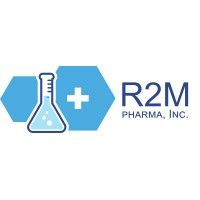预约演示
更新于:2025-05-07

R2M Pharma, Inc.
更新于:2025-05-07
概览
标签
肿瘤
化学药
关联
1
项与 R2M Pharma, Inc. 相关的药物靶点 |
作用机制 TRIM7 inhibitors |
在研机构 |
在研适应症 |
非在研适应症- |
最高研发阶段临床前 |
首次获批国家/地区- |
首次获批日期- |
100 项与 R2M Pharma, Inc. 相关的临床结果
登录后查看更多信息
0 项与 R2M Pharma, Inc. 相关的专利(医药)
登录后查看更多信息
8
项与 R2M Pharma, Inc. 相关的文献(医药)2024-03-22·Cancer Research
Abstract 6584: Aberrant TRIM7 expression potentiates RACO-1 mediated proliferation and dysregulated interferon responsiveness in the setting of anti-PD-1 acquired resistance in cancer
作者: Medina, Julio ; Rivera-Molina, Yisel ; Schreiber, Taylor H. ; Mwangi, Joseph ; Morra, Marc ; Li, Kevin ; Bhatt, Ulhas ; Fromm, George ; Nguyen, Thuy-Ai Tran ; Oien, Nathan
2023-08-15·Bioorganic & medicinal chemistry letters
Novel series of tunable µOR modulators with enhanced brain penetration for the treatment of opioid use disorder, pain and neuropsychiatric indications.
Article
作者: Li, Yihong ; Holan, Martin ; Lee, John ; Sperandio, David ; Wang, Sheldon ; Seidl, Frederick J ; Youngblood, Beth ; Bhatt, Ulhas ; Medina, Julio C ; McGee, Lawrence R ; Wei, Zhi-Liang ; Schwartz, Neil ; Nerurkar, Alok ; Ding, Pingyu ; Gehlert, Donald ; Nguyen, Thomas ; Li, Kevin ; Sadlowski, Corinne ; Widjaja, Tien
2023-01-01·Frontiers in psychiatry
EPD1504: a novel μ-opioid receptor partial agonist attenuates obsessive-compulsive disorder (OCD)-like behaviors.
Article
作者: Medina, Julio C ; Gehlert, Donald R ; Schwartz, Neil ; Youngblood, Beth
1
项与 R2M Pharma, Inc. 相关的新闻(医药)2022-08-01
SAN JOSE, Calif., Aug. 1, 2022 /PRNewswire/ -- BridGene Biosciences, Inc., a biotechnology company using a proprietary chemoproteomics technology to discover and develop small molecules for high value, traditionally undruggable targets, today announced that David Sperandio, Ph.D., a medicinal chemist with more than 20 years' experience, has joined the company as the Head of Chemistry.
Dr. Sperandio, an inventor on 23 patents and author of 25 peer-reviewed publications, has extensive experience leading cross-functional teams from molecule discovery through IND filing. Dr. Sperandio will lead the BridGene chemistry team and supervise research into covalent chemistry, chemical proteomics and quantitative mass spectrometry as methods for identifying undruggable targets. Additionally, Dr. Sperandio will be responsible for advancing BridGene's internal pipeline of first-in-class drugs for hard-to-drug targets in oncology.
BridGene co-founder and CEO Ping Cao, Ph.D., commented, "David's addition to our leadership team and the recent Series B financing deepen BridGene's capabilities for using IMTAC™ to discover new drugs for novel and traditionally undruggable targets. David's leadership and experience will help expand BridGene's library of molecules to identify as potential drug candidates as we aim to advance a pipeline of first-in-class drugs for these new targets."
Dr. Sperandio most recently served as an Executive Director at Biomea Fusion, where he led the team that identified BMF-500, a potential best-in-class targeted covalent FLT-3 inhibitor for the treatment of acute myeloid leukemia. Prior to joining Biomea Fusion, Sperandio led a collaboration of R2M Pharma Inc. with Tenaya Therapeutics Inc., which discovered novel HDAC6 inhibitors for cardiovascular diseases and was key for the clinical development of TN-301, an experimental treatment for heart failure. Dr. Sperandio started his career at Celera Corp. and focused on the structure-guided discovery of covalent reversible serine-protease inhibitors. He later moved to Gilead Sciences Inc., where he led the chemistry team that discovered Alobresib (GS-5829), a novel BRD4 inhibitor for prostate cancer, and Presatorvir (GS-5806), the first small molecule RSV fusion inhibitor that reached the clinic and showed proof of concept in men.
Dr. Sperandio commented, "I am excited to join BridGene at such a dynamic time for the company. 2022 has been a remarkable year so far, and I look forward to working closely with the management team to continue to drive the success of IMTAC™."
Dr. Sperandio obtained his doctoral degree in Organic Chemistry from the University of Zurich and completed his postdoctoral research at Stanford University.
About BridGene Biosciences
BridGene is a biotechnology company focused on discovering and developing innovative small molecules that drug traditionally undruggable targets, providing new paths to treat diseases. By using its proprietary chemoproteomics platform, IMTAC™, BridGene can screen small molecules against proteins in live cells to discover drug candidates for high value and traditionally undruggable targets. For this purpose, BridGene takes advantage of its proprietary, diverse library of tagged, drug-like small molecules. The ultimate goal is to enable breakthrough small molecule drug discovery with expanded mechanisms to treat diseases with targets previously inaccessible to small molecules. The uniqueness of BridGene's technology allows it to perform IMTAC™ screening for both covalent and non-covalent molecules, target different amino acids and discover new targets for disease treatments by deconvoluting phenotypic screening hits. The company is advancing a diversified pipeline of first-in-class drugs for targets in multiple disease areas. For more information, visit .
Contact
Tiberend Strategic Advisors, Inc.
Investors
Jonathan Nugent
+1-205-566-3026
[email protected]
Media
Bill Borden
+1-732-910-1620
[email protected]
Dave Schemelia
+1-609-468-9325
[email protected]
SOURCE BridGene Biosciences
合作First in Class小分子药物
100 项与 R2M Pharma, Inc. 相关的药物交易
登录后查看更多信息
100 项与 R2M Pharma, Inc. 相关的转化医学
登录后查看更多信息
组织架构
使用我们的机构树数据加速您的研究。
登录
或

管线布局
2026年03月01日管线快照
管线布局中药物为当前组织机构及其子机构作为药物机构进行统计,早期临床1期并入临床1期,临床1/2期并入临床2期,临床2/3期并入临床3期
临床前
1
登录后查看更多信息
当前项目
| 药物(靶点) | 适应症 | 全球最高研发状态 |
|---|---|---|
TRIM7 Inhibitor(Shattuck Labs) ( TRIM7 ) | 肿瘤 更多 | 临床前 |
登录后查看更多信息
药物交易
使用我们的药物交易数据加速您的研究。
登录
或

转化医学
使用我们的转化医学数据加速您的研究。
登录
或

营收
使用 Synapse 探索超过 36 万个组织的财务状况。
登录
或

科研基金(NIH)
访问超过 200 万项资助和基金信息,以提升您的研究之旅。
登录
或

投资
深入了解从初创企业到成熟企业的最新公司投资动态。
登录
或

融资
发掘融资趋势以验证和推进您的投资机会。
登录
或

生物医药百科问答
全新生物医药AI Agent 覆盖科研全链路,让突破性发现快人一步
立即开始免费试用!
智慧芽新药情报库是智慧芽专为生命科学人士构建的基于AI的创新药情报平台,助您全方位提升您的研发与决策效率。
立即开始数据试用!
智慧芽新药库数据也通过智慧芽数据服务平台,以API或者数据包形式对外开放,助您更加充分利用智慧芽新药情报信息。
生物序列数据库
生物药研发创新
免费使用
化学结构数据库
小分子化药研发创新
免费使用
